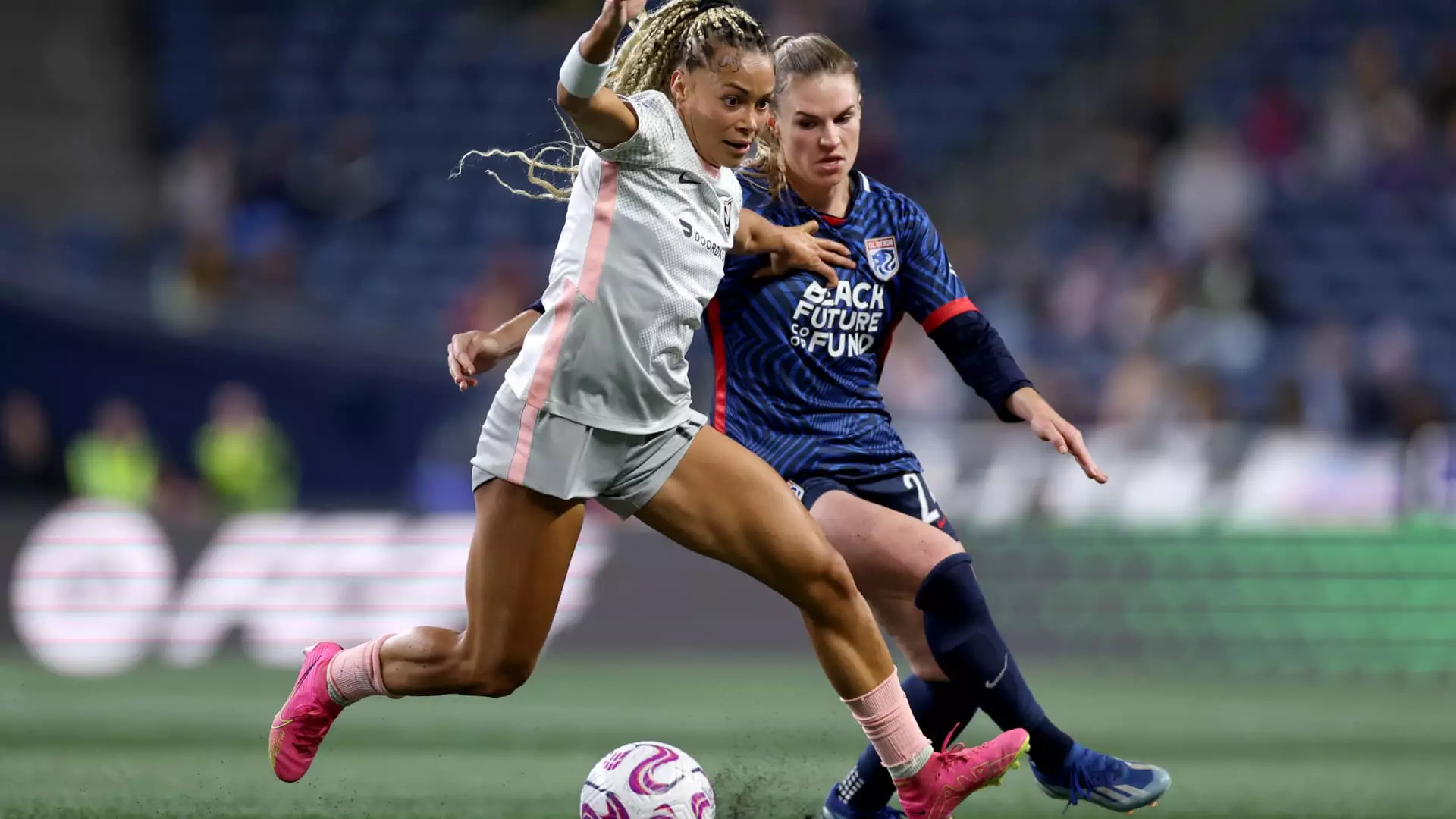Women’s soccer is experiencing a monumental shift in the world of sports investment, with private equity firms stepping off the sidelines and taking on a more active role. While other major U.S. sports leagues have allowed private equity investors to hold passive, minority stakes, the National Women’s Soccer League (NWSL) is paving the way by allowing these firms to take majority control of the economics of the teams. It’s a groundbreaking move that is reshaping the landscape of women’s sports.
Sixth Street made history by becoming the first private equity firm to own a team in the NWSL when they acquired the San Francisco women’s team, Bay FC, for a record $54 million. This move set the stage for further investments in the league, with Carlyle recently partnering with the Seattle Sounders FC to purchase the Reign FC for a staggering $58 million. These investments are not just about money; they are about infusing additional capital into women’s soccer to drive growth and success.
The influx of private equity investment is not just about financial gains; it’s also about supporting the long-term sustainability and success of women’s sports. With attendance at NWSL games up more than 40% this year, there is a clear momentum in the sport that private equity firms are eager to capitalize on. The goal is to continue building on this momentum, making smart choices, and ultimately providing a better product on the field for fans and players alike.
Changing the Revenue Game
Women’s elite sports revenue is on track to surpass the billion-dollar mark for the first time, with soccer representing a significant portion of that figure. While men’s sports revenue traditionally leans heavily on broadcast rights, women’s sports revenue focuses more on merchandising sales, ticket sales, partnerships, and sponsorships. However, the NWSL recently signed a groundbreaking $240 million media deal, signaling a significant shift in the revenue landscape for women’s sports.
Looking Ahead to the Future
As valuations in women’s sports franchises continue to climb, private equity interest in the sector is only expected to increase. Deals like the potential acquisition of Angel City FC at a valuation of $250 million by Disney CEO Bob Iger and his wife are setting new records and reshaping the perception of women’s sports investments. While the potential for growth and profitability is evident, the NWSL is proceeding cautiously, recognizing the unique challenges that come with institutional capital ownership in sports.
Redefining Ownership in Sports
The introduction of private equity investment in women’s soccer is challenging the traditional ownership model seen in major U.S. sports leagues. While leagues like the NBA, MLB, NHL, and MLS permit private equity ownership of up to 30%, the NWSL is setting a new standard by allowing firms to take majority control. This shift is not without its challenges, as Commissioner Berman notes the need to find a balance between financial investment and maintaining the integrity of the sport.
The rise of private equity investment in women’s soccer is reshaping the landscape of sports investment and opening up new opportunities for growth and success. While the road ahead may be paved with challenges, the potential for women’s sports to reach new heights is greater than ever before. As private equity firms continue to recognize the value and potential of investing in women’s soccer, the game is truly changing for the better.

